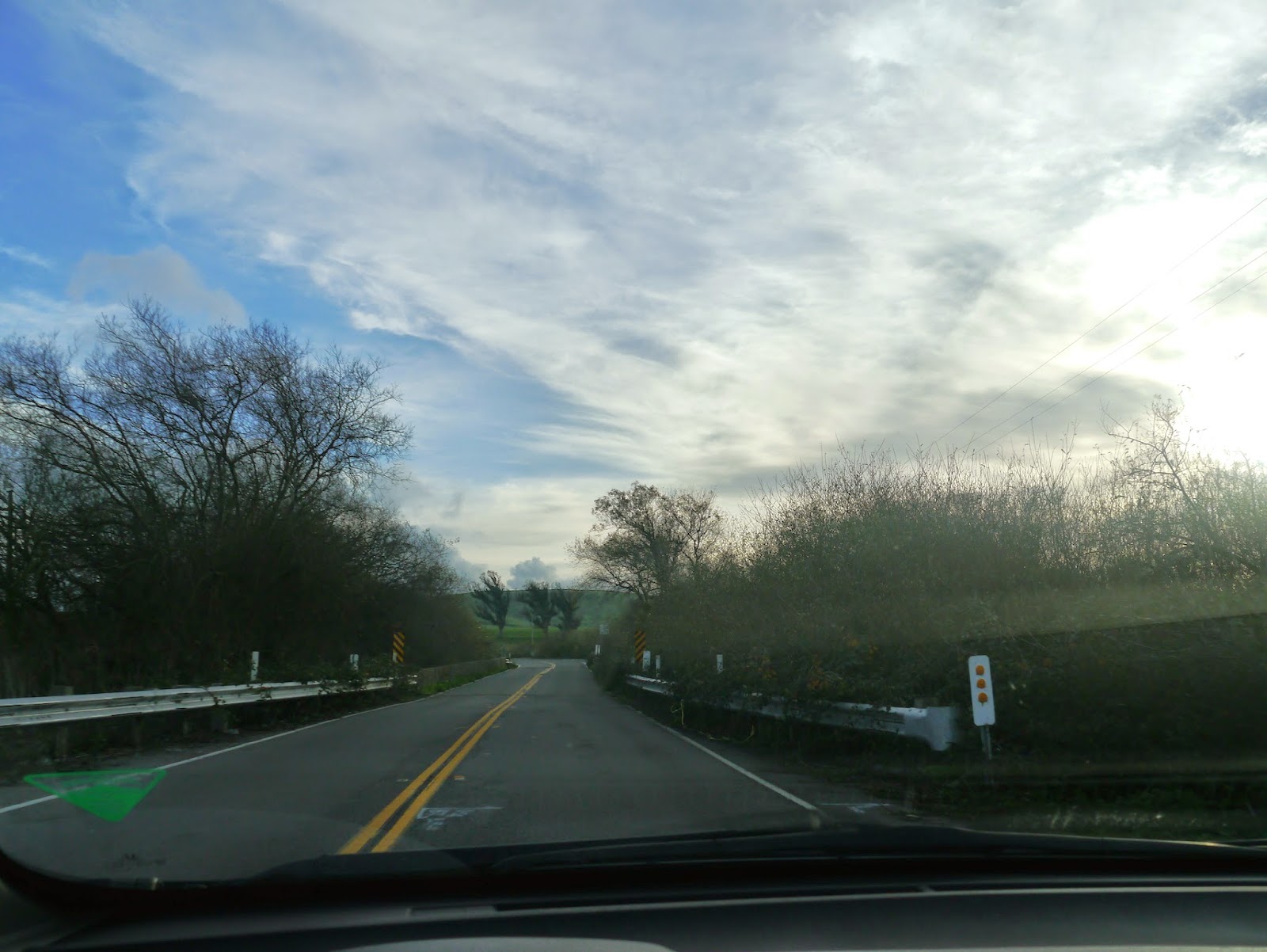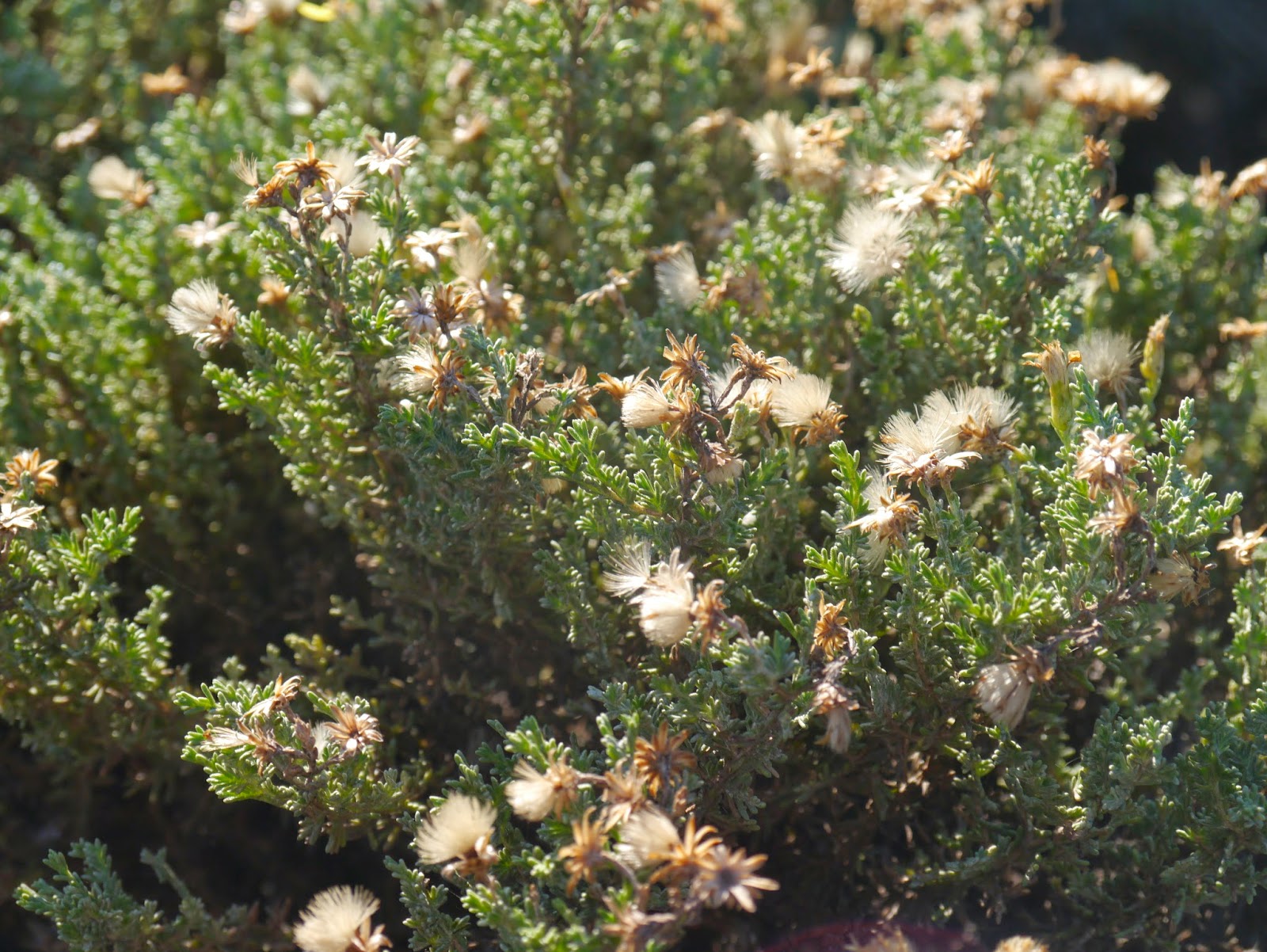Despite the dystopia America has awoken to in the past month, this is one of the most beautiful winter seasons I can remember here on the coast of California, where the fir trees find their southernmost range, and the black sages their northernmost. I have always loved winter in California, and by winter I mean the rainy season, which normally (in the past) starts in October and lasts until the end of March. I have loved it ferociously, almost desperately in recent years, when drought dried the grasses dead gray until January. I love it with the love and fear that loss entail. I do not know what our rapidly changing climate will do to California. If we will become a desert or a floodplain. But I do know that I love the specifics of winter in this bioregion, as I have known it since I was a little girl. Back then, I despised the sight of blue sky between storms. It made me sour, and a little bit depressed. I coveted my time by the fire with a book and my berry tea as it raged and rained outside. I rejoiced when the power went out and we had to light candles and shower in cold water. When the lights came back on suddenly and without warning, I was petulant, disappointed. I ran outside in the street or in the back garden in the heaviest rain, and when I was older, and falling in love, I walked the mountain's flanks and rejoiced in that drenching.
Green is the color of winter, gold is the color of summer, here on the coast of California. It is a beautiful, unusual combination, and the Northern European myths of yule and solstice only match to a point, but not beyond. If you want to really understand the winter here, you have to imagine the feeling of the deep darkness of short days and long nights, and all the magic and old voices that darkness kindles, while all the while that feeling the way that darkness is itself making a basket full of green, and everywhere you walk through the shortening days, the grass is an iridescence along the pathways, the nettles are leaping up from the earth, the raptors and waterbirds that summer elsewhere are suddenly everywhere on the bays and the telephone lines. This is the place they come for gentleness, for shelter. White kites with kohl-rimmed eyes that hunt aloft like angels. Kestrels with poppy-orange feathers and coats of smoke.
Ours is a sheltering kind of winter, for this is a land of many gifts. But it is still a dark winter, and the nights are long, with very sharp stars. The kind of darkness that roots grow full in. The kind of darkness that allows the unseen world to dance at all the corners of your perception. This, I think, is why I love winter so fiercely. The other day, walking down through the rain-wet redwoods in the early dusk, I asked myself why is it that I love the winter and the darkness so? Immediately many external answers came to me— because of the green, because of the rain, because of the dark, because of the time to sit by fires, by candles, with books and food and good company, because of the fecundity of darkness and of wet, because stories and ideas spring up through me like so many mushrooms... Yes, I replied to myself, but why? Why this deep thrill at the early nights, the short golden light, the wet, the dark?
And then it came to me, a glimmer of new understanding. I think that in winter (and especially in this landscape where winter also means new growth) the unseen world—the spirits that dwell in trees, in stones, in waters, in birds, in stars, in us—is a little easier to see, because it seems to me that all things relating to Otherworlds, to Mysteries, to Magic, prefer the cover of darkness. They are not beings or forces that can be seen with your eyes in broad daylight. They do not, as John O'Donohue would say, appreciate the "neon culture" that surrounds us, the need to shine the bright lights of fact and reason into every gentle burrow or wounded valley of land and spirit. In winter, night holds the day in her cupping hands, encircling and informing it. Night, stars, and moon hold the ground we walk, and hold us too, and the beings that dwell only in the unseen corners of earth and consciousness surround us more closely, more often, so that we are more likely to glimpse them there, just before dawn, just after dusk. In rain, in wet, in cold and greening forests, in long nights full of dreams and firelight, everything that we cannot see but that we know is there, dancing in us and in the world, is there, very close, and something in the darkness helps us to believe in it all again, at least for a little while, despite everything we've been taught and told.
Then, of course, I remembered this poem by the great mystic, Rainer Maria Rilke.
You, Darkness
by Rainer Maria Rilke
translated by Robert Bly
You darkness, that I come from,
I love you more than all the fires
that fence in the world,
for the fire makes
a circle of light for everyone,
and then no one outside learns of you.
But the darkness pulls in everything:
shapes and fires, animals and myself,
how easily it gathers them! —
powers and people —
and it is possible a great energy
is moving near me.
I have faith in nights.
Our seasons are becoming so unpredictable. It is easy to spin out into anxiety, to worry about next year, or tomorrow, or January. But right now, it's pouring. The redwoods are winedark with rain. There is much in the human world to cause outrage, to demand action. But also, there is the shelter of this darkness, of rain's undeniable beauty, of the unseen world, so lonely, lately, for our quiet and loving attention.






.JPG)




















































